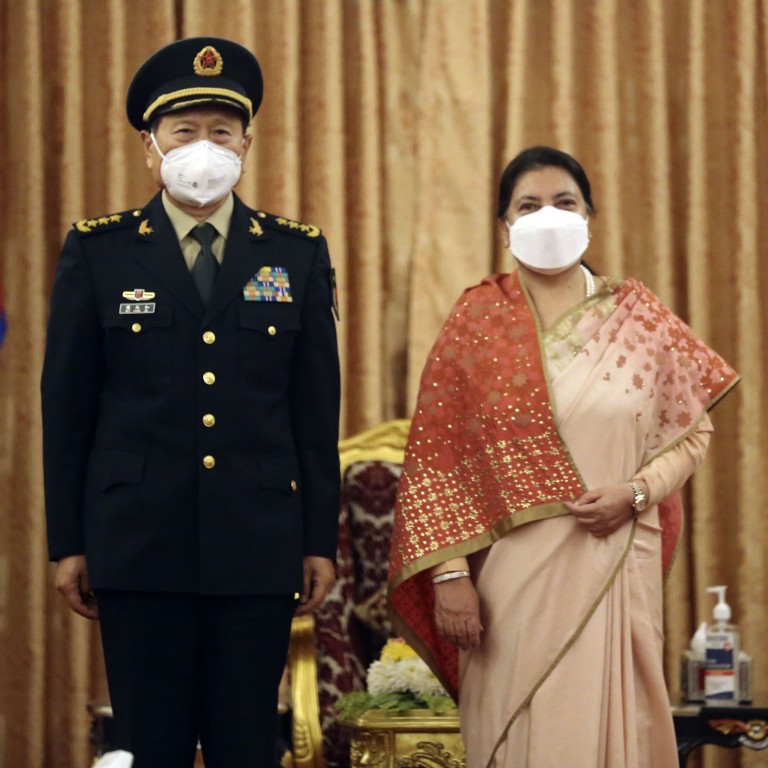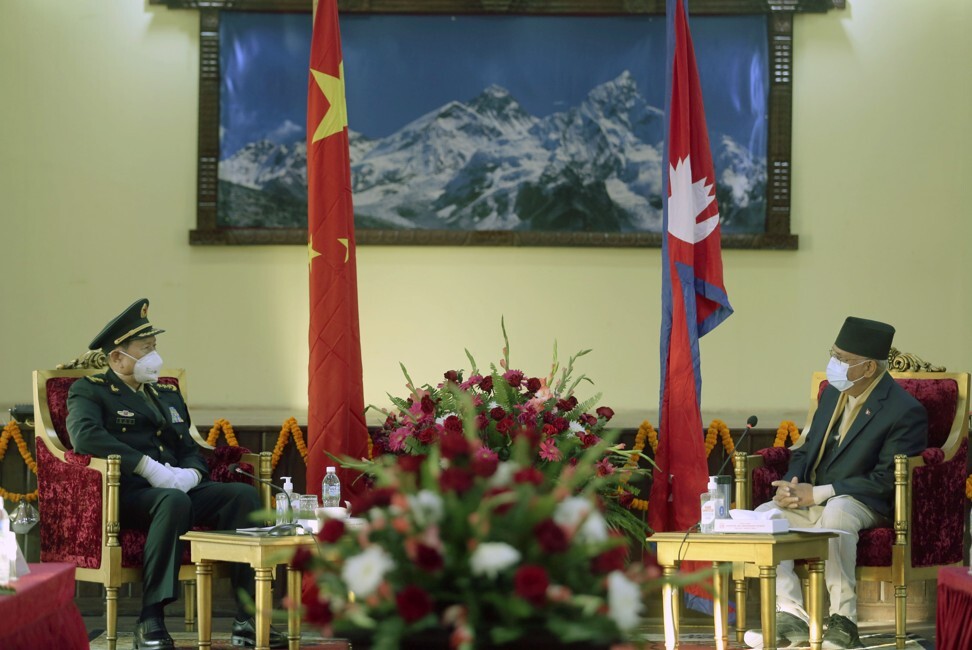
China’s defence chief pledges military support for Nepal amid border disputes with India
- During talks in Kathmandu, Wei Fenghe vows to safeguard Nepal’s independence, sovereignty and territorial integrity
- Closer relations with a regional giant could give Nepalis more choices to develop their economy, analyst says
General Wei Fenghe, China’s defence minister and a state councillor, made the pledge when he met Nepalese Prime Minister KP Sharma Oli and held talks with Nepali Army chief Purna Chandra Thapa in Kathmandu on Sunday.
According to a separate report from Chinese news agency Xinhua, Wei said China would resolutely support Nepal to safeguard its independence, sovereignty and territorial integrity.
“China will continue to maintain close communication with Nepal, conduct in-depth practical cooperation and continue to provide support and help for the Nepali Army, and make greater contributions to the well-being of the two peoples and regional peace and stability,” Wei said.
Are India and Nepal friends again because of concerns over China?
The Nepali Army expressed confidence that “the visit will help in further strengthening and expanding the cordial military-to-military relations between the two countries”.
Wei also met Nepalese President Bidya Devi Bhandari during the visit.

Wei’s visit came a day after Indian Foreign Secretary Harsh Vardhan Shringla wrapped up his maiden two-day visit to Nepal, during which Shringla and his counterpart Bharat Raj Paudyal discussed issues including the dispute over the Kalapani region.
Kalapani is under Indian administration, but has also been claimed by Nepal since 1997. It is one of three regions along the 1,880km open border shared by Nepal and India that remain contested.
China rejects Nepali opposition claims of border landgrab
Bhaskar Koirala, director of the Nepal Institute of International and Strategic Studies in Kathmandu, said closer military ties between China and Nepal could serve the strategic needs of both countries.
“It makes infinite sense for China to seek an enhanced level of military cooperation with a geographically important country that also boasts of a long military history and tradition,” Koirala said. “For the Nepali Army, it is important to build a relationship with the neighbouring country’s PLA, as China’s military is one of the largest in the world and there is tremendous scope for cooperation and confidence building.”
Koirala said this development would make India feel uncomfortable, but for a small country such as Nepal, maintaining friendly ties with both giants could help generate peace and stability in the region.
Long Xingchun, president of the Chengdu Institute of World Affairs think tank based in Sichuan, said developing closer ties with China could afford Nepal more choices to develop its economy.
“India regards Nepal [as] being in its sphere of influence but as a sovereign country Nepal has rights to diversify its relations with other countries, such as China and Japan. Once the China-Nepal railway is finished, it can help Nepal’s economic development and expand its international market,” Long said.

